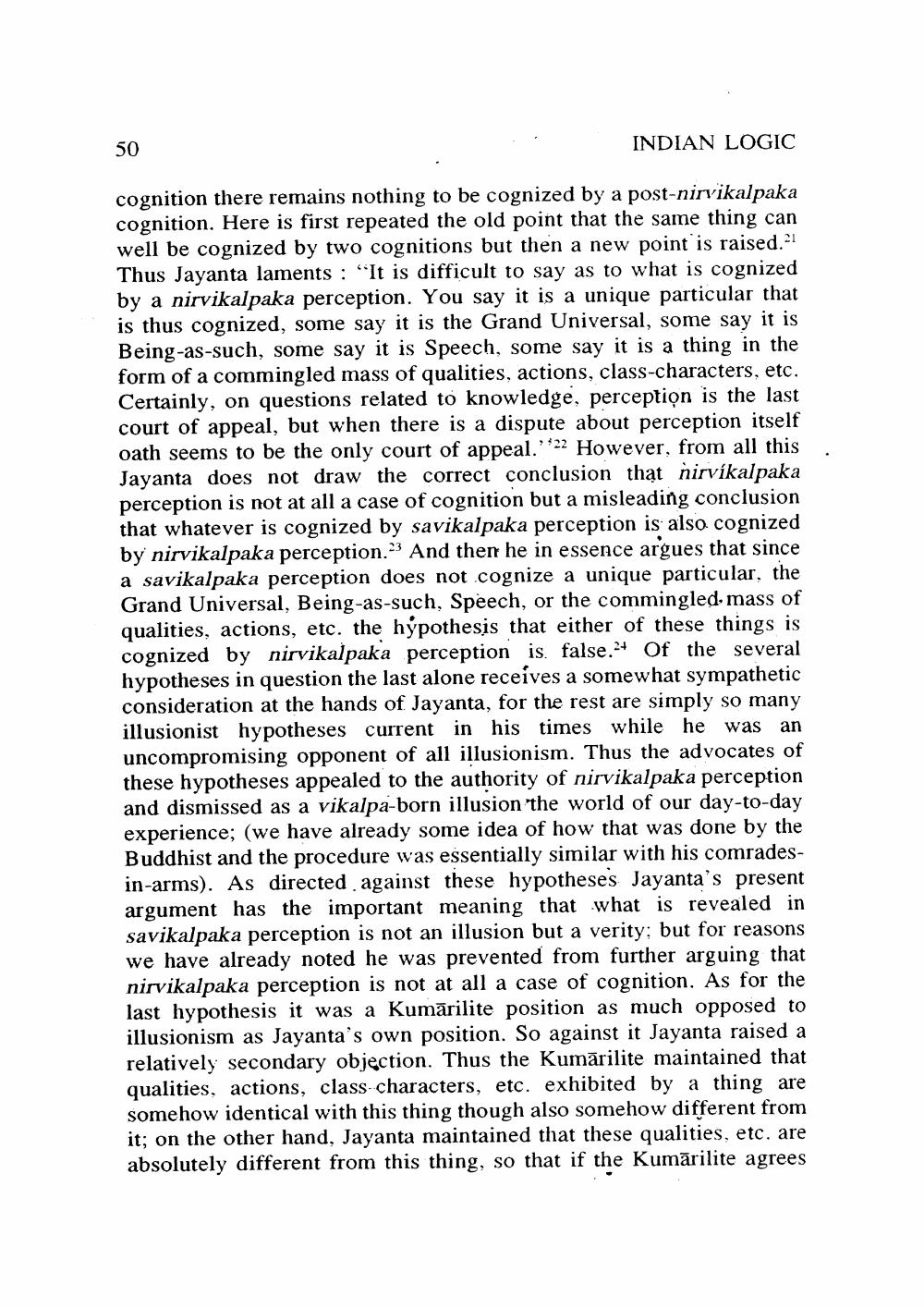________________
50
INDIAN LOGIC
cognition there remains nothing to be cognized by a post-nirvikalpaka cognition. Here is first repeated the old point that the same thing can well be cognized by two cognitions but then a new point is raised." Thus Jayanta laments: "It is difficult to say as to what is cognized by a nirvikalpaka perception. You say it is a unique particular that is thus cognized, some say it is the Grand Universal, some say it is Being-as-such, some say it is Speech, some say it is a thing in the form of a commingled mass of qualities, actions, class-characters, etc. Certainly, on questions related to knowledge, perception is the last court of appeal, but when there is a dispute about perception itself oath seems to be the only court of appeal. However, from all this Jayanta does not draw the correct conclusion that hirvikalpaka perception is not at all a case of cognition but a misleading conclusion. that whatever is cognized by savikalpaka perception is also cognized by nirvikalpaka perception." And then he in essence argues that since a savikalpaka perception does not cognize a unique particular, the Grand Universal, Being-as-such, Speech, or the commingled-mass of qualities, actions, etc. the hypothesis that either of these things is cognized by nirvikalpaka perception is false. Of the several hypotheses in question the last alone receives a somewhat sympathetic consideration at the hands of Jayanta, for the rest are simply so many illusionist hypotheses current in his times while he was an uncompromising opponent of all illusionism. Thus the advocates of these hypotheses appealed to the authority of nirvikalpaka perception and dismissed as a vikalpa-born illusion the world of our day-to-day experience; (we have already some idea of how that was done by the Buddhist and the procedure was essentially similar with his comradesin-arms). As directed against these hypotheses Jayanta's present argument has the important meaning that what is revealed in savikalpaka perception is not an illusion but a verity; but for reasons we have already noted he was prevented from further arguing that nirvikalpaka perception is not at all a case of cognition. As for the last hypothesis it was a Kumärilite position as much opposed to illusionism as Jayanta's own position. So against it Jayanta raised a relatively secondary objection. Thus the Kumärilite maintained that qualities, actions, class characters, etc. exhibited by a thing are somehow identical with this thing though also somehow different from it; on the other hand, Jayanta maintained that these qualities, etc. are absolutely different from this thing, so that if the Kumärilite agrees




